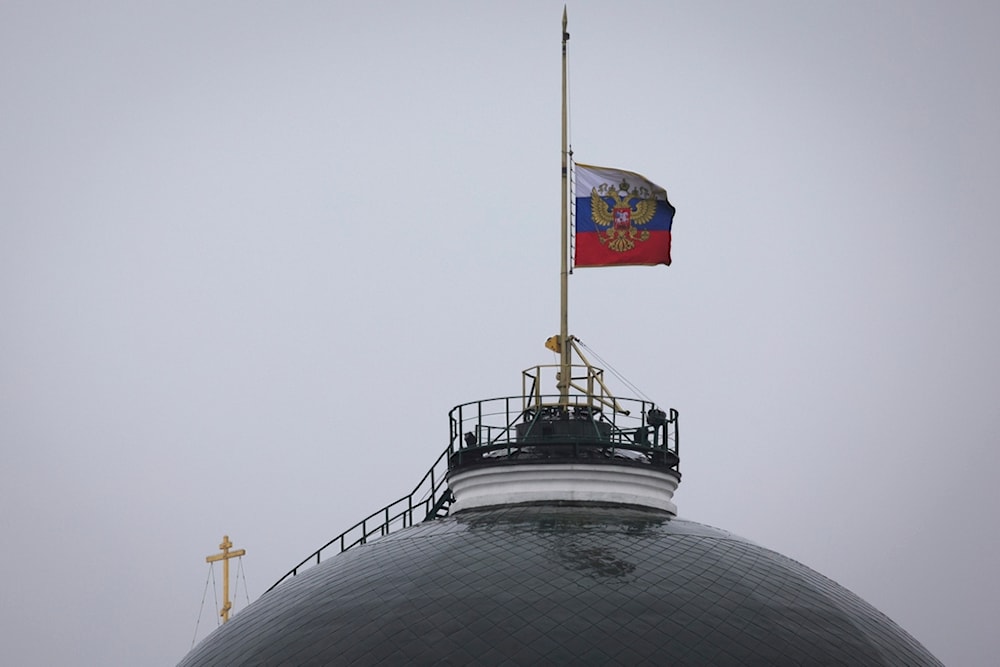Macron's nuclear remarks draw sharp rebuke from Russia
Macron labeled Russia as a "threat to France and Europe" and stated that he had chosen "to open the strategic debate on the protection of our allies on the European continent by our (nuclear) deterrent."
-

Russian President's Flag flies at half mast over the Kremlin in Moscow, Russia, Sunday, March 24, 2024. (AP)
French President Emmanuel Macron's recent remarks about potentially extending France’s nuclear protection to European allies have drawn strong reactions from Russian officials.
Macron underscored the need for Europe to assert its own strategic autonomy, stressing that the continent's "destiny must be in its own hands, not decided in Washington or Moscow."
Russian Foreign Minister Sergey Lavrov perceived Macron’s statements as a direct threat to Russia.
"If he considers us a threat, convenes a meeting of the chiefs of general staff of European countries and Britain, says it is necessary to use nuclear weapons, prepares to use nuclear weapons against Russia, this is, of course, a threat," Lavrov was quoted by state news agency RIA as saying.
In the same vein, Kremlin spokesperson Dmitry Peskov reinforced this concern, interpreting Macron’s rhetoric as an indication that France seeks to prolong the conflict.
He noted that France’s willingness to consider nuclear deployment for security purposes signals "a very confrontational" stance.
Meanwhile, Russian Foreign Ministry spokesperson Maria Zakharova criticized Macron for making contradictory statements, dismissing him as a "storyteller" whose remarks are "completely out of touch with reality."
"Every day he [Macron] makes some statements that are completely out of touch with reality and contradict previous ones. Well, he is a storyteller," Zakharova told reporters, commenting on Macron's words regarding the French nuclear arsenal.
These developments unfold amid escalating tensions in Europe, as leaders debate defense strategies and continued support for Ukraine. Macron’s proposal has ignited discussions on Europe’s security architecture and the role of nuclear deterrence in ensuring the continent’s stability.
Driving the news
France and the United Kingdom revealed that their troops would be sent to Ukraine to ensure the ceasefire stands once potentially established, with US support. However, their roles have not been extensively disclosed.
EU leaders are set to discuss nuclear deterrence, among other issues, as well as assistance for Ukraine and European defense, during their Thursday meeting in Brussels.
Macron, in a televised speech ahead of the meeting, labeled Russia as a "threat to France and Europe" and stated that he had chosen "to open the strategic debate on the protection of our allies on the European continent by our [nuclear] deterrent."
France must accept its "special status" as possessing the "most efficient, effective army in Europe" as well as nuclear weapons, according to Macron, who said he would encourage the French government to embark on a new investment that will allow it to raise private and public funds without raising taxes.
"Our nuclear deterrent helps us," Macron stated, adding that he would initiate discussions on extending the French nuclear umbrella to European partners.
Macron's move follows a recent demand from German election winner Friedrich Merz for a conversation on "nuclear sharing" with France.
Read more: Le Pen rejects European nuclear defense plan: Politico

 3 Min Read
3 Min Read











